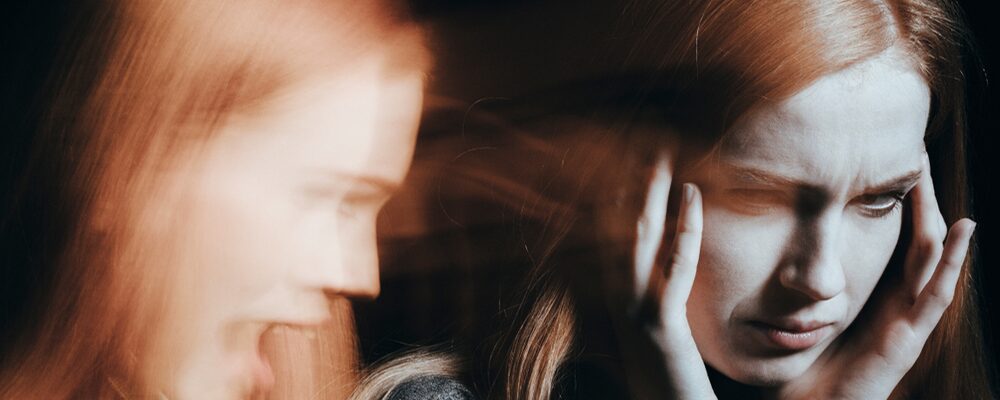Key Takeaways
- Psychotic depression is a severe form of major depressive disorder (MDD) that includes symptoms of both depression and psychosis, such as delusions or hallucinations.
- It may develop due to a combination of genetic, biological, and environmental factors, and can be triggered by trauma or stress.
- Early and accurate diagnosis is crucial, as psychotic depression can resemble bipolar disorder or schizophrenia.
- Treatment typically involves a combination of antidepressant and antipsychotic medications, psychotherapy, and in some cases, electroconvulsive therapy (ECT).
- With proper care and consistent follow-up, most individuals recover within months, although ongoing medical monitoring remains important to prevent relapse or suicidal thoughts.
Depression can take many forms, from mild sadness to severe mental health conditions that distort one’s sense of reality. One of the most serious types is psychotic depression, also known as major depressive disorder with psychotic features (MDD with psychotic features). This condition combines persistent sadness and hopelessness of major depressive disorder with episodes of psychosis, such as hallucinations or delusions.
Psychotic depression is no joke, as it affects roughly one out of every four people admitted for depression. Therefore, understanding psychotic depression is essential for early recognition and effective treatment. Let’s explore its symptoms, causes, diagnosis, and treatment in detail.
What Is Psychotic Depression?
Psychotic depression or major depressive disorder with psychotic features is a severe subtype of major depressive disorder (MDD) in which a person experiences both depressive and psychotic symptoms. Psychosis in this context refers to losing touch with reality, leading to false beliefs (delusions) or seeing and hearing things that are not real (hallucinations).
There are several terms used for this condition, such as depression with psychosis, major depression with psychotic features. Despite the different terms, they all describe the same serious mental health disorder.
How Does MDD with Psychosis Feel Like?
People with psychotic depression may believe they are worthless, guilty, or being punished for something they didn’t do. These distorted thoughts often reflect the person’s low mood and hopelessness.
To put it simply, psychotic depression occurs when severe depression and psychosis overlap, creating a condition that can deeply affect daily life, relationships, and one’s overall sense of self.
Symptoms of Psychotic Depression
If you are having episodes of psychotic depression, you might be experiencing depressive and psychotic symptoms.
Depressive Symptoms
The following depressive symptoms are most common in patients with psychotic MDD:
- Fatigue and lack of energy
- Thoughts of death or suicide
- Persistent sadness or emptiness
- Feelings of worthlessness or guilt
- Changes in appetite or sleep patterns
- Loss of interest in activities once enjoyed
- Difficulty in paying attention or concentrating
Psychotic Symptoms
- Hallucinations: Hearing voices or seeing things that aren’t real
- Disorganized thinking: Trouble maintaining focus or speaking coherently
- Delusions: False beliefs that feel real, such as thinking one is being punished or followed
What makes psychotic depression particularly dangerous is that the delusions often align with the depressive mood. For instance, someone may believe they are responsible for global disasters or that they are beyond saving

Psychomotor Agitation and Psychomotor Retardation
Psychomotor agitation is also frequently observed. It refers to a restless state where the person can’t relax, sit still, or stop fidgeting.
On the other hand, some individuals with psychotic depression experience psychomotor retardation. In this case, their thoughts and physical movements become noticeably slower.
Those living with psychotic depression are also at a higher risk of having suicidal thoughts.
What Causes Psychotic Depression?
While the exact cause remains unclear, researchers believe it results from a combination of genetic, biological, and environmental factors.
- Genetics: Individuals with a family history of depression, bipolar disorder, or psychosis are at higher risk.
- Brain chemistry: Imbalances in neurotransmitters such as serotonin, dopamine, and norepinephrine can contribute to both depression and psychosis.
- Stress and trauma: Traumatic life events, abuse, or chronic stress may trigger symptoms.
- Medical conditions: Certain illnesses or medications can also contribute to major depressive disorders with psychotic features.
What triggers psychotic depression? Sometimes, major depression with psychotic features can appear suddenly after a major stressor. In other cases, it develops gradually, with depressive symptoms appearing first and psychosis following later.
Major depressive disorder in teens is becoming increasingly common, and early detection is key. In some rare cases, teens may also develop depression with psychosis. Warning signs include sudden academic decline, social withdrawal, self-harm thoughts, or extreme guilt.
Diagnosis: How Is Psychotic Depression Identified?
Diagnosing psychotic depression can be complex, as its symptoms often resemble those of other mental health conditions, such as schizophrenia or bipolar disorder.
A mental health professional will conduct:
- A detailed psychiatric evaluation to assess mood, thought patterns, and perceptions.
- Interviews with family members to understand behavioral changes.
- Medical exams and lab tests to rule out underlying physical causes.
Doctors also evaluate symptoms to rule out other causes of psychosis, such as schizophrenia, bipolar disorder, PTSD, alcohol abuse, or other neurological conditions.
The question: What is MDD disorder with psychosis, often arises during diagnosis. Simply put, it’s major depressive disorder accompanied by psychotic features such as delusions or hallucinations.
Accurate diagnosis is necessary because MDD with psychotic features treatment differs from treatment for non-psychotic depression or other psychotic disorders.
How Long Does MDD With Psychotic Features Last?
A common concern for patients and families is, how long does MDD with psychotic features last? The duration varies depending on the severity of symptoms, response to treatment, and early intervention.
Without treatment, psychotic depression can last for months or even years. However, with timely medical care, most individuals begin to see improvement within weeks or months. Continuing therapy and medication as prescribed helps prevent relapse and ensure long-term stability.
MDD With Psychotic Features Treatment Options
Treating psychotic depression typically involves a combination of medications, psychotherapy, and sometimes electroconvulsive therapy (ECT).
1. Medications
The most effective approach often combines an antidepressant and an antipsychotic medication.
- Antidepressants improve mood and energy levels.
- Antipsychotics help manage delusions and hallucinations.
Some common combinations include SSRIs (like fluoxetine) paired with antipsychotics (like olanzapine). This dual approach helps address both the depressive and psychotic aspects of the condition.
2. Psychotherapy
Once psychosis is under control, cognitive-behavioral therapy (CBT) and supportive counseling can help individuals process their thoughts, develop coping skills, and rebuild confidence.
3. Electroconvulsive Therapy (ECT)
For severe cases or when medications don’t work, Electroconvulsive Therapy (ECT) is often highly effective. It helps reset brain chemistry, offering relief for those with treatment-resistant major depression with psychotic features.
4. Hospitalization
In cases where individuals pose a risk to themselves or others, hospitalization ensures safety and close medical supervision until the person stabilizes.
MDD with psychotic features treatment aims not only to reduce symptoms but also to help patients regain a sense of normalcy and functionality in their lives.
Conclusion
Psychotic depression is more than just feeling sad; it’s a complex, serious condition that blends the darkness of depression with the confusion of psychosis. Recognizing its symptoms early, understanding what triggers psychotic depression, and seeking prompt medical help can make a life-changing difference.
Additionally, Hightower Clinical is conducting clinical trials for major depressive disorder to help find a better treatment option for depression. By participating, you can contribute to advancing mental health research and play a part in building a healthier, more supportive world for emotional well-being.




